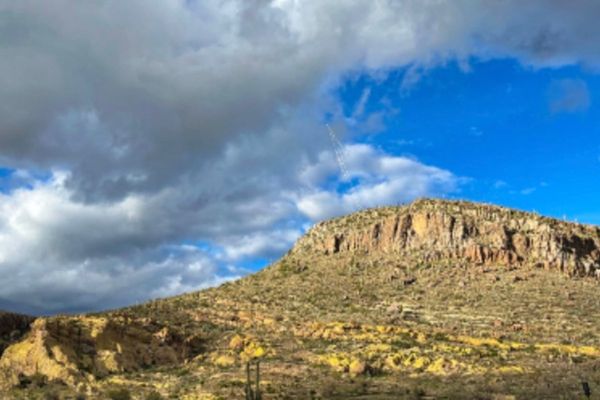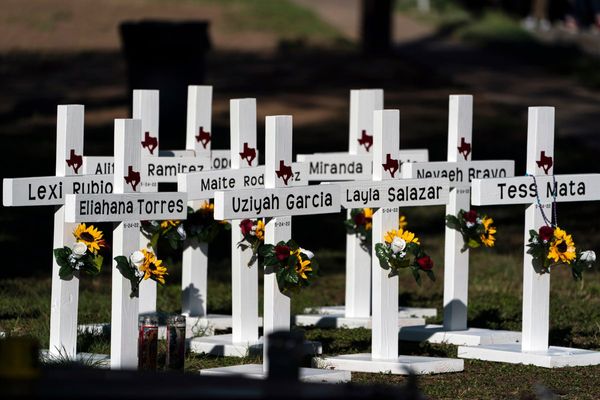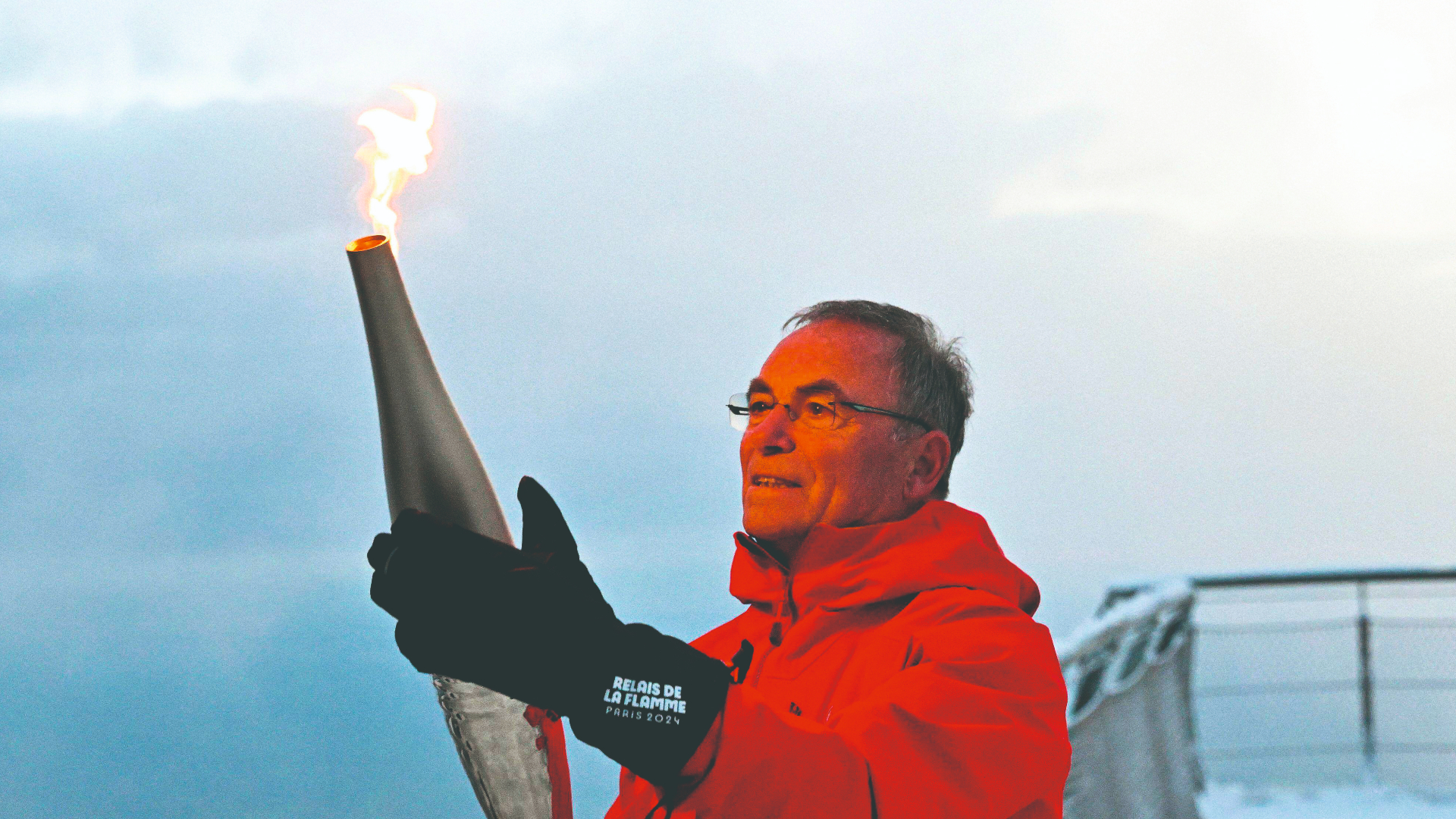
Not every athlete gets the chance to compete for their country at the Olympic Games. However, many non- participants do have the opportunity to fulfil another dream: taking part in the Olympic torch relay.
This cultural aspect of the Olympic Games showcases the best of the host country and kicks off the exciting build-up to the biggest sporting event in the world. Since 8 May, when the Olympic flame arrived in Marseille from Athens, it has wended its way through 400 towns and cities in France and its overseas territories in the French West Indies, French Guyana, Reunion Islands and French Polynesia, ending its journey in central Paris.
On 26 July, the world witnessed a spectacular opening ceremony on the River Seine.
From a pool of over 20,000 people from the world of sport, entertainment, arts and commerce – as well as community leaders and everyday heroes – the Olympic committee selected 11,000 who demonstrate the values of the 2024 Olympics. These include a commitment to promoting sport, embodying French excellence, and striving for a more sustainable, inclusive, and fairer society, with a focus on solidarity.
Charles Coste, 100, torch bearer at Colombes, Hauts-de-Seine, Parisian region
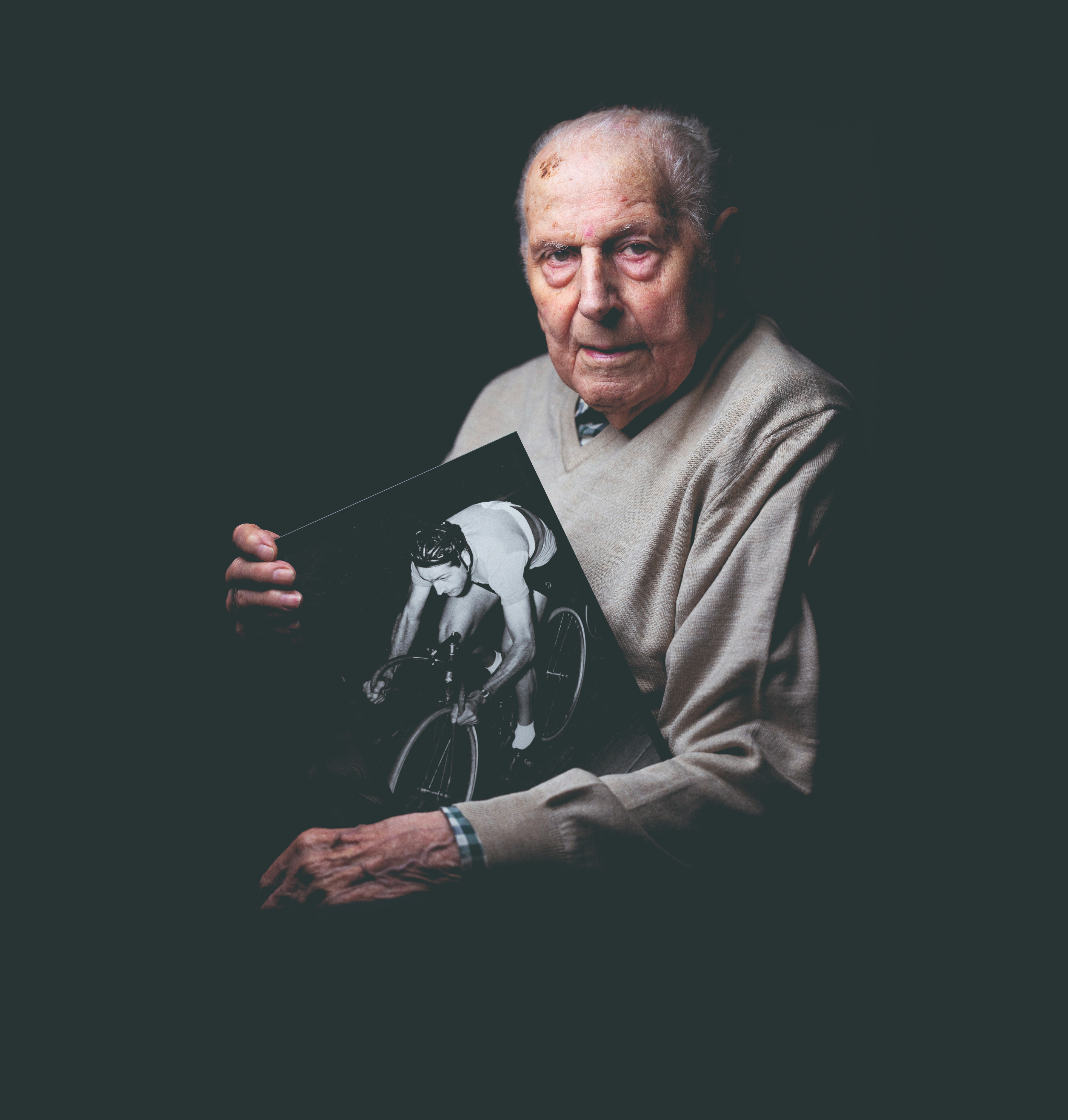
When my local town hall at Bois-Colombes [a north- western suburb of Paris] informed me a few months ago that I would be carrying the Olympic torch, I was so happy. It’s a great honour to carry the flame at your home Games.
I won my gold medal in the team pursuit at the London 1948 Olympics, at Herne Hill Velodrome. I knew the track very well because I’d raced there a number of times. The first time was in 1946 and later I raced there during 1947. It was a lovely big track of just over 400m, I recall. It was a hard surface, but for the four-man team that I formed with Serge Blusson, Pierre Adam, and Fernand Decanali, the surface suited us, as we were also roadies.
England was still in shock following the war and the bombardments, but the organisation was perfect. We lodged in flats near the velodrome that had been used to house the American airforce.
The British were the favourites, though we knew them well, as we had raced against them throughout the year. They were our opponents in the semi-final, and we beat them, breaking the course record in the process.
In the finals we raced the Italians, who came out of the blocks all guns blazing, and we fell behind, but our team worked together to pull them back, and they lost one man. In the end we beat them by a good margin. It was a great atmosphere, as the crowd cheered us on even though we’d beaten the British team.
The last time the Olympic Games were held in Paris was in 1924, but I didn’t see much, as I was a baby. So I am glad to be able to see the Games this time, and to be carrying the Olympic torch on 24 July, 2024. I have knee pain due to arthritis and I have to walk with a zimmer frame, so I don’t know exactly how long I will carry the torch for, but I want to carry it for a few metres – enough for the photo opportunity.
They’ll be wonderful Games. When you think that there’ll be events at the Grand Palais, the Eiffel Tower, cycle racing at the Arc de Triomphe, and equestrian events at the Château de Versailles, only France can provide such a spectacular backdrop. I really wish Tony Estanguet [president, Paris 2024 Olympics] lots of luck with hosting the Games.
Bernard Hinault, 69, torchbearer at Pic du Midi de Bigorre, Hautes-Pyrénées
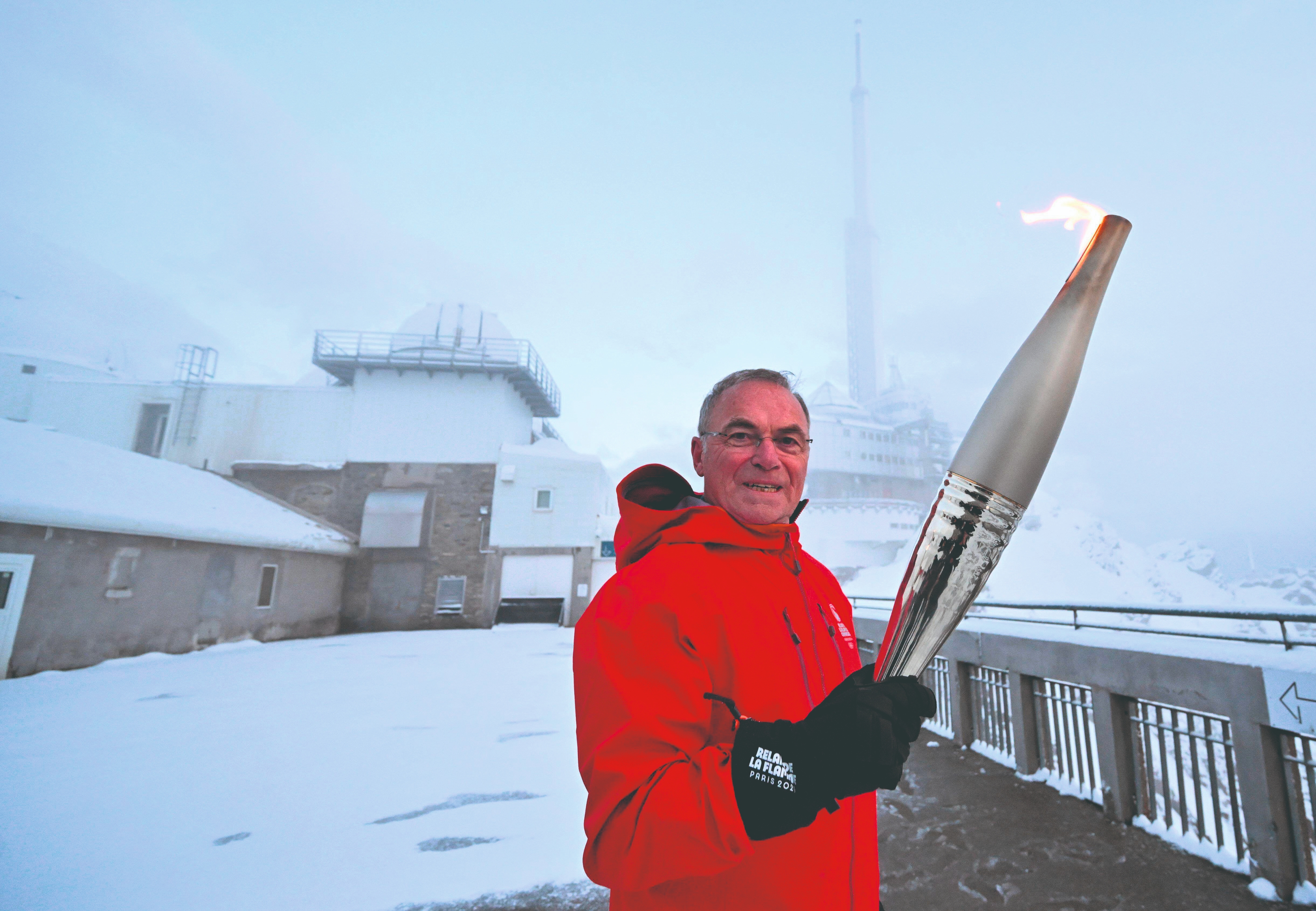
It was a great pleasure to be a torchbearer for the Paris Olympic Games on 19 May, especially because as a professional racer I was not allowed to compete in the Olympic cycle race. It is as brilliant as if I had won the Tour de France!
I previously carried the Olympic torch for the 1994 Winter Olympics in Albertville. That was in Paris with Michel Drucker, a well-known presenter on French television. On this occasion, at Pic du Midi de Bigorre, I was with Nicolas Lopez, an Olympic champion fencer. The view of our torches as the sun rose behind the mountains in the early morning was spectacular. I had to get up at 4am to be on the mountain for 6am, and it was barely 1°C, but it was worth it.
The department where I live, the Côtes-d’Armor in Brittany, decided not to host the Olympic torch relay because they felt the cost of doing so was too high. But then I was invited by the Hautes-Pyrénées department to take part in their leg of the relay. Pic du Midi de Bigorre is just above the Tourmalet, which was a very important place in my racing career.
I’m looking forward to the Games, but given the restrictions in place around Paris, I’ll watch the Olympics on the TV.
In the cycling, I’m looking forward to seeing Van der Poel, Van Aert, and Pogačar if they are selected. Pogačar is a dream to watch, and I love how he likes to attack. It reminds me of how I used to be – and why not have a little Frenchman in the mix too!
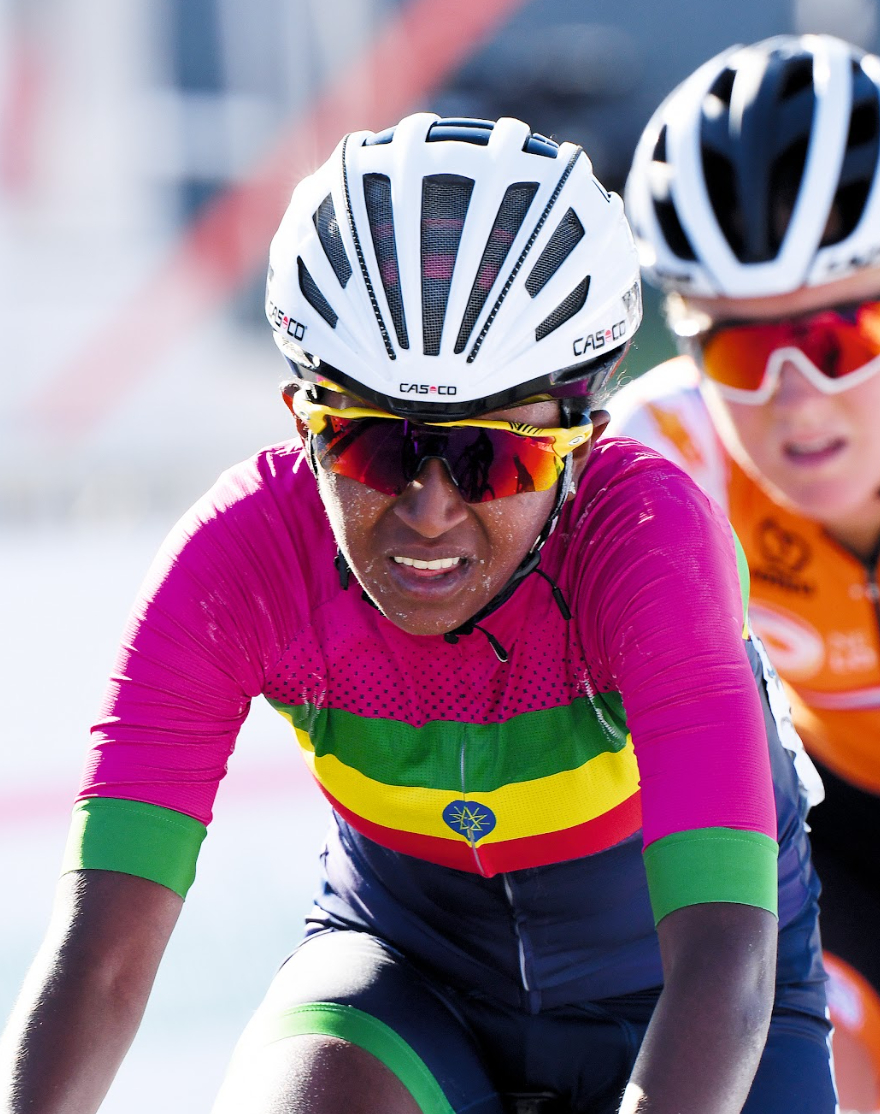
As well as the above legends of cycling, a number of professional road racers and personalities in cycling have carried the Olympic torch.
Eyeru Tesfoam Gebru (Team Komugi-Grand Est) on 30 May at Bayeux, Calvados: the first person from an Olympic refugee team to take part in an Olympic torch relay, Eyeru fled her native Ethiopia in 2021, seeking asylum in France and joining a professional team.
Jean-René Bernaudeau, team manager, Total Energies on 4 June at Vendée: as well as being head of a leading UCI ProTeam, Bernaudeau has spent over 40 years getting young people in the Vendée region involved in cycling.
Arnaud Démare (Arkéa-B&B Hotels) was pencilled in to carry the torch at Beauvais, Hauts- de-France on 18 July, but clearly opted to stay in the Tour de France instead, finishing in a small group of sprinters in Barcelonnette on stage 18. This was despite the fact the final sprint stage was two days before in Nîmes.
Audrey Cordon-Ragot (Human Powered Health) for the Paralympic relay on 25 August at Morbihan, Brittany: having recovered from a stroke in 2022, the Bretonne came back fighting and secured a national TT title as well as selection for her third Games, and is keen to end her final year as a pro on a high.
Anne-Caroline Chausson, 46
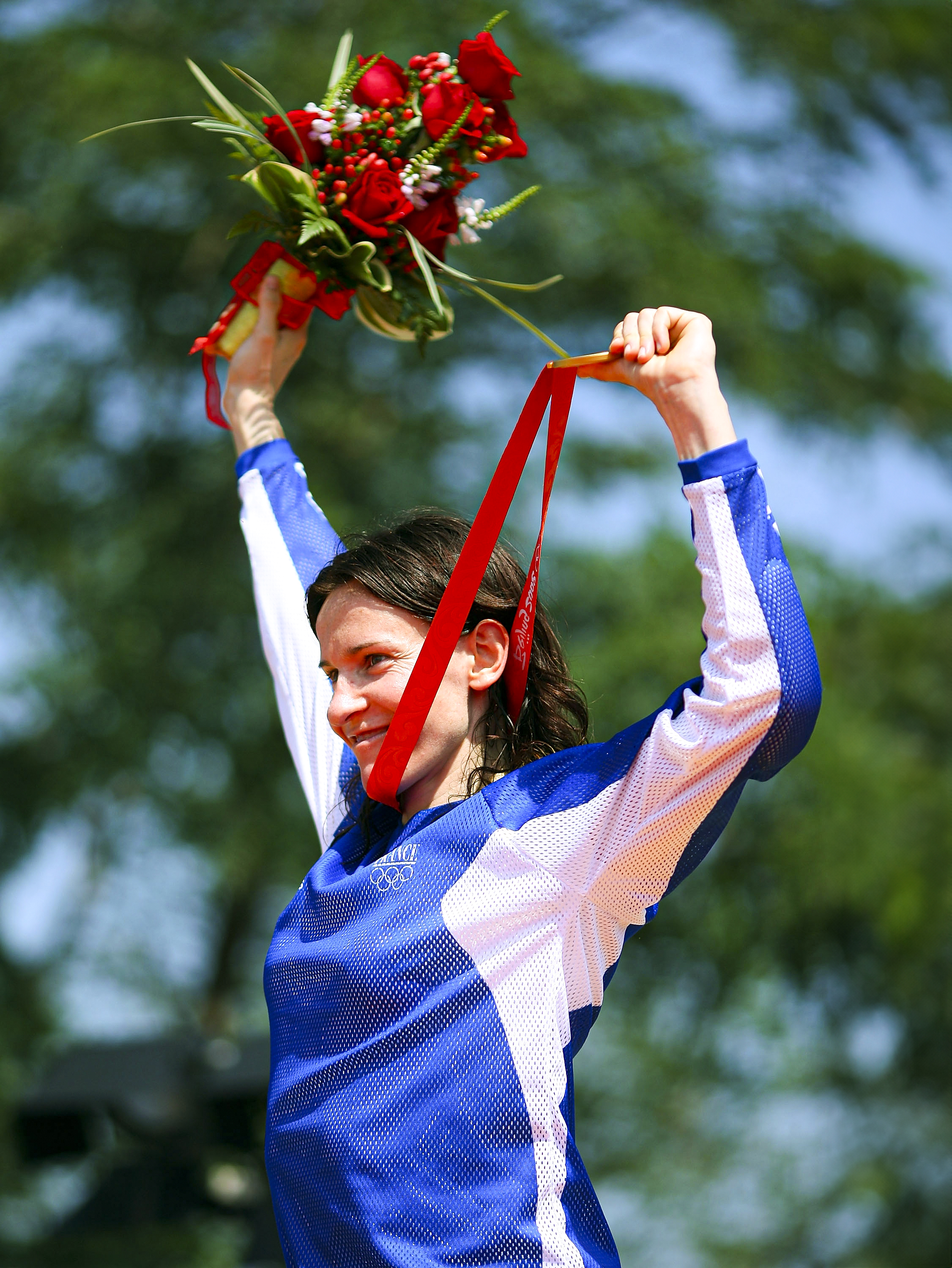
Participating in the Olympic torch relay on 19 June was an eventful day. We travelled up to Chalet Reynard by car with a group of girls who had been selected by the French Cycling Federation. Then we were given our relay outfits, and briefed on how the day would go. There was a lot of focus on security, and when you carry the Olympic torch, you have a security bubble around you. Although the Olympic torch is a symbol for peace, there’s still a risk of demonstrators trying to put out the flame or snatching it from you.
From Chalet Reynard we emerged from the forest onto the moonscape area and I cycled the final kilometre with a group of about 24 cyclists, and led the group up to the summit. In front of a crowd of spectators, Miguel Martinez, an Olympic champion mountain biker, passed me the Olympic torch. It was a wonderful moment and I was proud to represent cycling in this way. We were lucky with the weather too, as it had been very rainy in the area in the days before.
Living near Bédoin, and leading the Olympic torch relay up Mont Ventoux, a symbolic place in cycling, was really emotional. I savoured every moment of it, knowing that I wouldn’t get to hold the torch for long.
When I won Olympic gold, it was the first time BMX racing was in the Olympics and I was the first winner of the women’s event. At the time, many people had said I wouldn’t succeed in BMX because I was a mountain biker, and as a 30-year-old I was deemed too old. I moved to Vaucluse specifically to train for BMX and did so for 18 months, after not having done it for 13 years. Winning was a huge moment, but eventful too, as Shanaze Reade crashed during the final.
As a former Olympic champion, you no longer get to take part in major sporting events on or off the bike, so carrying the Olympic flame was really something special. I’m looking forward to watching the mountain biking and BMX events in Paris. The French are likely to do well in the mountain biking, especially among the women, with Loana [Lecomte] and Pauline [Ferrand- Prévot]. Pauline is mentally a lot more mature than in previous Olympics, and I think that will make the difference this time.
